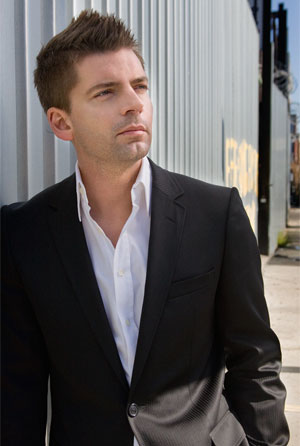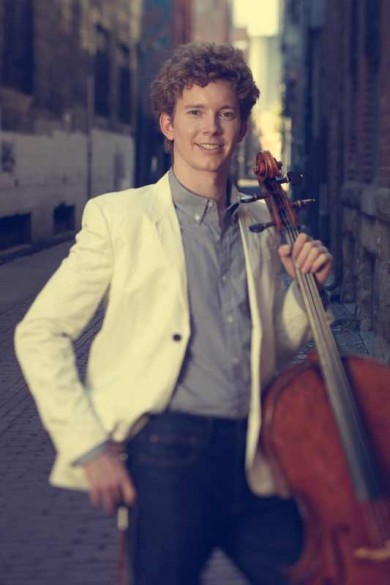Pintscher leads New World in bracing program of German modernists

Matthias Pintscher conducted the New World Symphony Saturday night in a program of contemporary German music.
Saturday’s “Sounds of the Times” concert at New World Center presented complex music by three of today’s top German composers, conducted by the youngest of them, Matthias Pintscher. In a tribute to his teacher Hans Werner Henze, who died last October, Pintscher put the New World Symphony through its paces for the adventurous audience.
First up was Wolfgang Rihm’s Will Sound, written for the American ensemble The Alarm Will Sound in 2006. Pintscher’s strong gestures and concise cuing conveyed a physicality echoed in Rihm’s punchy, pointillistic work. With bright splashes of kaleidoscopic colors over slower-moving harmonic swells in the brass, ferocious energy and concentration from the chamber group delivered a tight concert opener.
The most traditional work on the program, Henze’s programmatic Symphony No. 8 (1992) takes its inspiration from Shakespeare’s A Midsummer Night’s Dream. The Allegro Moderato captures Puck’s worldwide flight seeking a magic flower. Opening filigrees in winds, harp, percussion, and brass morphed rapidly and substantially into dense orchestration. Henze uses instrumental families to delineate his polyphony, but the constant layering of additional material quickly led to maximum saturation, undercutting the idea of wind and speed.
The “Ballabile,” based on Queen Titania’s infatuation with the donkey-headed Bottom was a lurching, macabre dance with cleaner lines that goes on too long. The scherzo featured singing string lines and bravura passagework from trombonist Santiago Novoa and tubist Joshua Lee.
The Adagio, based on Puck’s closing speech, purports to seek calm. Opening with gentle strings, it devolved much too quickly into a swirl of moods. Among the highlights were melodic exchanges between winds and strings, and winds and harp. However, many impressive solos were covered in the thick texture, which needed more clarity and definition from Pintscher. While every moment was shaped, there was a lack of the overall trajectory required to make a stronger impact.

Joshua Roman
The finest and most progressive work on the program was Pintscher’s own Reflections on Narcissus. Cast in five continuous movements for cello and orchestra, the work is a 2005 retooling of a cello and chamber ensemble piece he composed at age 20 for Henze.
From the percolating opening for percussion, the work evolved in consistently inventive timbral structures, with attacks and decays spread between instruments for a trick-of-the-ear effect. Young soloist Joshua Roman’s sweet intonation in the extreme high register of the cello was impressive, but as the texture grew, Roman was too often buried, emerging only here and there.
Roman’s aggressive launches in the second movement resonated in chain reactions throughout the orchestra, building into a frenzy. In the more transparent third movement, Roman’s lyrical lines traversed the entire cello range, with a show-stopping melody in artificial harmonics, answered by wavering winds and pulsing strings.
Roman’s masterful timbral shading was fully revealed in the unaccompanied opening cadenza of the fourth movement. Sudden shifts from aggressive sawing to sustained harmonics and understated ripples of sound culminated in a blistering run off the edge of the fingerboard, answered by tutti color bursts edged with percussion.
The fifth movement was the most inspired, featuring Pintscher’s trademark delicacy in quiet passages that suspended time. An elegiac character was poetically conveyed as Roman’s languorous solo echoed throughout sections of the orchestra, most poignantly with New World cellist Maaike Harding.
Posted in Performances
Leave a Comment
Sun Mar 31, 2013
at 12:21 pm
No Comments






